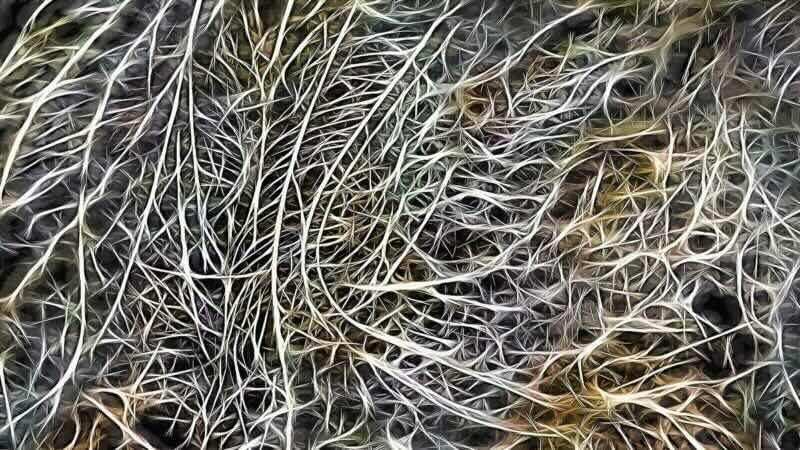Robert Romanyshyn
The Wisdom of the Virus

This is the fourteenth blog post in the series Sixteen Psychological Reflections on COVID-19 by Robert Romanyshyn
In the previous blog, I spoke of the wisdom of the Monster and throughout these blogs we have been exploring Covid-19 as an example of one of the monsters we have created in an unconscious continuation of using our technological powers as if we are new lords of creation.
The word wisdom in this blog aligns it, therefore, with the previous one. But it is phrased as a question, for how could we even consider the possibility of any connection between wisdom and virus?
Framed as a question, the theme of this blog is intentionally a challenge, which is designed to make us pause.
Virus belongs to the lowest possibility of life on the planet, a protein bundle on the very boundary between living and non-living entities. Wisdom belongs to the highest capacity of human reason, that capacity which the poet T.S. Eliot feared was already in decline in the burgeoning age of information when he published The Rock in 1934. Its choruses speak to us today more than ever. Here are a few lines to illustrate this claim:
The endless cycle of idea and action,
Endless invention, endless experiment,
Brings knowledge of motion, but not of stillness;
Knowledge of speech, but not of silence;
Knowledge of words, and ignorance of the Word.
All our knowledge brings us nearer to our ignorance,
All our ignorance brings us nearer to death,
But nearness to death no nearer to God.
Where is the Life we have lost in living?
Where is the wisdom we have lost in knowledge?
Where is the knowledge we have lost in information?
The depth psychological approach of these blogs has been my reply to Eliot’s questions. Throughout them I have been inviting us to consider that the reply to his ‘where’ questions are to be found in remembering what has been lost. Blogs on the necessity to not forget, on the necessity to begin the work of remembering by going to the margins of mind, on the value of Mary Shelly’s visionary text Frankenstein that illustrates the redemptive quality of a marginal education, and on the nature of the symptom as a work of reminding us of something too vital to forget but forgetting it because it is too painful to remember have led us now to this place where Covid-19 challenges us to consider the following:
Does the wisdom of Covid-19 lie in waking us up to the hubris of our god like dreams that regards our sense of wisdom as the highest expression of human consciousness, a wisdom, however, which has lost touch with its roots in human embodiment in the digital age as we explored in blog 7?
Has such hubris elevated us so high above these roots in the natural world that only the lowest of the low can humble us?
Does the wisdom of the virus lie in the inversion of the high and the low, shading the too bright light of our inflated god-like dreams with the dark shadows of a lost sense of any sacred boundary that is the measure of who we are?
In the context of these questions, it seems that it is well worth asking,
What does the virus ask of us?
What does it want from us?
Each blog, in its own way, is a reflection on these two questions and a response to it. All of them engage Covid-19 through active imagination, personifying it in a dialogue that attends to its story as it speaks to the margins of what we know, challenging us to remember what we have forgotten, re-minding us about what we have lost.
Enjoy all the essays in the series Sixteen Psychological Reflections on COVID-19.
You might also enjoy Robert Romanyshyn’s course Reflections on Ecology and Soul. In this course, Robert takes us on a journey into the depths of the soul of the world and into those places where nature, psyche, technology, and humans meet.
Share
Robert Romnyshyn
Robert D. Romanyshyn is an Emeritus Professor of Clinical Psychology at Pacifica Graduate Institute, an Affiliate Member of The Inter-Regional Society of Jungian Analysts, and a Fellow of the Dallas Institute of Humanities and Culture. He is also a Core Faculty Member at Jung Platform.
Other blog posts

Jung Platform is an online education space that offers a range of depth psychological and spiritual perspectives. Our courses and talks explore the journey of life with guidance from highly regarded teachers.
We are passionate about offering practical, life-enhancing tools and opportunities to connect with others on this path. Our aim is to help people connect to their own soul, so they can live more fully and colorfully.
Stay inspired.Get our magical updates.
Thank you for signing up!
FEATURED LINKS
-
Headquarters in Salt Lake City, Utah
-
info@jungplatform.com
-
Copyright © 2026
